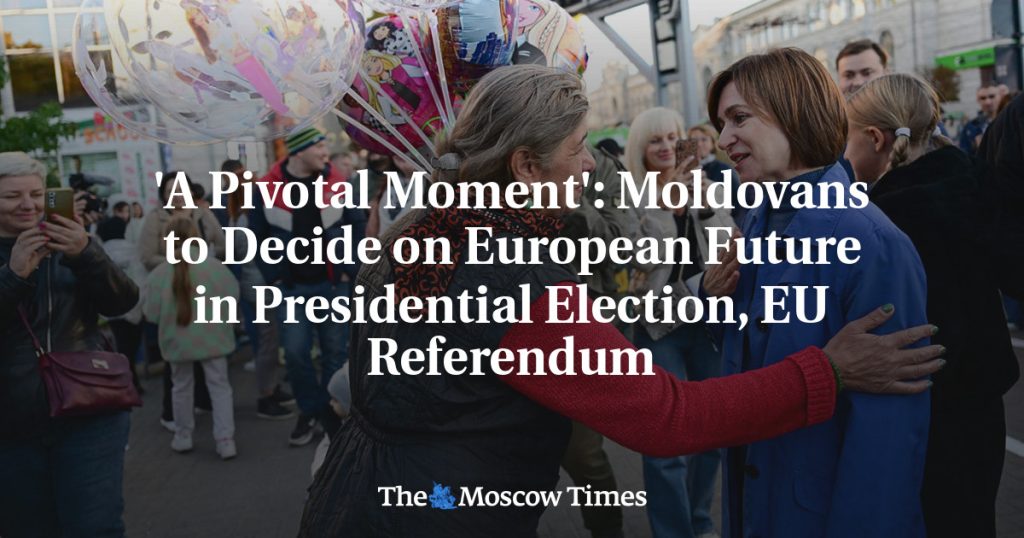Moldova is gearing up for its presidential election and EU referendum, with President Maia Sandu hoping for victory in both to continue her efforts to bring the country into the European Union. 11 candidates are competing for the presidency, with current polls favoring Sandu and pro-Russian candidate Alexander Stoianoglo. The diaspora vote, representing about 25% of Moldovan citizens living abroad, will play a crucial role in determining the country’s future path towards European integration or alignment with Russia.
Oleg Brega, a Moldovan citizen living in Romania, is a strong supporter of Sandu and EU accession. He left Moldova over 30 years ago for educational and economic opportunities and is part of the diaspora that favors a European future for the country. In the previous election, high voter turnout from the diaspora played a significant role in Sandu’s victory over the pro-Russian incumbent. Many Moldovans migrate to Europe for work, with a significant number holding Romanian citizenship due to their shared heritage.
Sandu’s leadership has seen Moldova distance itself from Russian cultural influence, with the country reverting to the name Romanian and removing Moldovan from its list of official languages in 2023. Sandu has made efforts to lessen the country’s reliance on Russian energy and has focused on foreign relations, attracting funds, and ensuring safety guarantees in the region. The lead-up to the election has seen reports of scaremongering regarding possible Russian interference, including allegations of vote-buying and bussing in voters from Moscow.
For many Moldovans, moving closer to the democratic world and keeping out of Russia’s sphere of influence is crucial, especially given the ongoing conflict in Ukraine. Sandu’s administration has faced challenges such as soaring inflation rates due to factors like the war in Ukraine and the COVID-19 pandemic. The upcoming election is seen as vital in determining Moldova’s path forward, with the possibility of a positive EU referendum result sending a critical signal to other countries in the region, such as Georgia, which also faces obstacles in its European aspirations.
The Moldovan diaspora, which is critical in shaping the country’s future, is encouraged by Sandu to return home and help rebuild the country. While some regions, like Gagauzia, may lean towards pro-Russian sentiments, many Moldovans living abroad still hold hope for a European future. Despite challenges such as disinformation campaigns and reports of vote-buying, there is confidence among supporters like Oleg that the election and referendum will ultimately lead to a positive outcome for Moldova’s European aspirations. The results of the upcoming events will not only impact Moldova but also carry weight for other former Soviet states facing similar decisions on their future paths.


